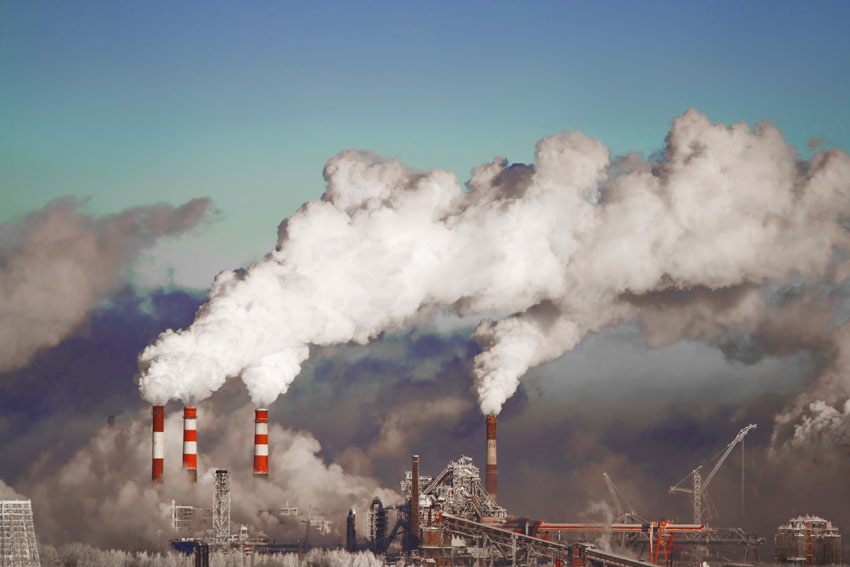
The Importance of Reducing Methane Emissions
Methane is a hazardous greenhouse gas (GHG) with over 20 times the heat-trapping potential of carbon dioxide over the first 20 years once it reaches the atmosphere. After escaping into the atmosphere, methane acts as a blanket, insulating the earth while absorbing energy and slowing the rates at which heat escapes the planet. This means a higher presence of methane in our atmosphere ultimately increases global warming.
Due to human activities, especially oil and gas operations, methane emissions have more than doubled since pre-industrial times. In 2019, methane accounted for nearly 10% of all U.S. GHG emissions from human activities.
We'll look at the adverse effects of methane and why now is the best time to reduce methane emissions.
How Methane Emissions Affect the Environment
As methane releases into the air, it reacts in multiple hazardous ways. First, the gas leaves the atmosphere through oxidation by forming water vapor and carbon dioxide. The presence of carbon dioxide and methane in the environment results in an unprecedented rate of warming, which eventually leads to acute climate risks, such as crop loss, wildfires, extreme weather events, and rising sea levels.
Reducing Methane Emissions Is Necessary for Human Life
Methane is the main contributor to ground-level ozone, which is a hazardous pollutant in our environment—it accounts for over 1 million premature deaths each year. A high level of methane in the air reduces the quality and amount of oxygen we breathe, resulting in many health issues, such as damages to human lung tissues, breathing problems, reduced lung function, asthma, and chronic lung disease.
The Impact of Methane Emissions on the Oil and Gas Industry
The oil and gas industry is one of the most significant sources of methane emissions in the world. The Environmental Protection Agency reveals oil and gas industry emits nearly 8 million metric tons of methane a year. A substantial part of these emissions is due to methane leaks along the oil and gas supply chain.
Methane can also emit during the production and transportation of oil, coal, and natural gas. Reducing methane gas emissions from oil and gas operations is undeniably one of the most cost-effective and impactful actions to achieve global climate goals.
How to Minimize Methane Emissions
Fortunately, methane has a shorter life span in the air than carbon dioxide, which means reducing new methane emissions could substantially reduce the speed of warming.
Companies can reduce methane gas emissions from oil and gas operations through leak detection, monitoring, and repairing worn-out parts that leak gases. In recent years, more companies are integrating digital tools that detect and measure methane leaks from their operations and completing urgent repairs more quickly.
Digitization to Manage Methane Emissions
Digital technologies deployed across the oil and gas value chain play a crucial role in helping companies reduce the emission of methane. Innovations, such as automated asset management, predictive maintenance, and industrial internet of things (IoT) help prevent substantial losses in leaked, vented, and flared methane that eventually finds its way into the atmosphere. Other digital tools used to predict, detect, and prevent methane leaks include advanced sensors, machine learning, and big data analytics.
Using Aegex Digitization Tools to Monitor Methane Emissions
Aegex offers innovative tools for detecting and monitoring methane emissions in the oil and gas industry. Aegex digitization tools, such as the NexVu IoT solution, have features and functionalities like smart sensors, endpoints, and radios that provide accurate methane emissions measurements for effective monitoring and decision-making.
Additionally, the Aegex10 intrinsically safe tablet features a fully integrated Windows 10 platform and data-driven predictive maintenance technologies that enable real-time communication and data management, boosting your efforts to monitor methane leaks in hazardous environments.
Leverage Aegex's Digital Tools to Monitor Methane in Your Operations
As mentioned earlier, the impacts of methane in our atmosphere cut across all spheres of our lives, from the air we breathe to the food we eat and the water we drink.
Reducing methane emissions in the gas and oil industry is the most effective way to immediately slow down the rate of global warming substantially and reverse climate change. Ideally, methane has a short-lived life span of about 12 years, which means removing excessive methane from our atmosphere now leads to immediate climate and health benefits.
As an industry leader in providing valuable technologies to industries with hazardous environments, Aegex is committed to efforts to reverse climate change by reducing methane emissions. We provide digital monitoring and detection tools that help gas and oil industry players detect, measure, and monitor methane leaks and gain crucial insights for informed and data-backed decision-making.
